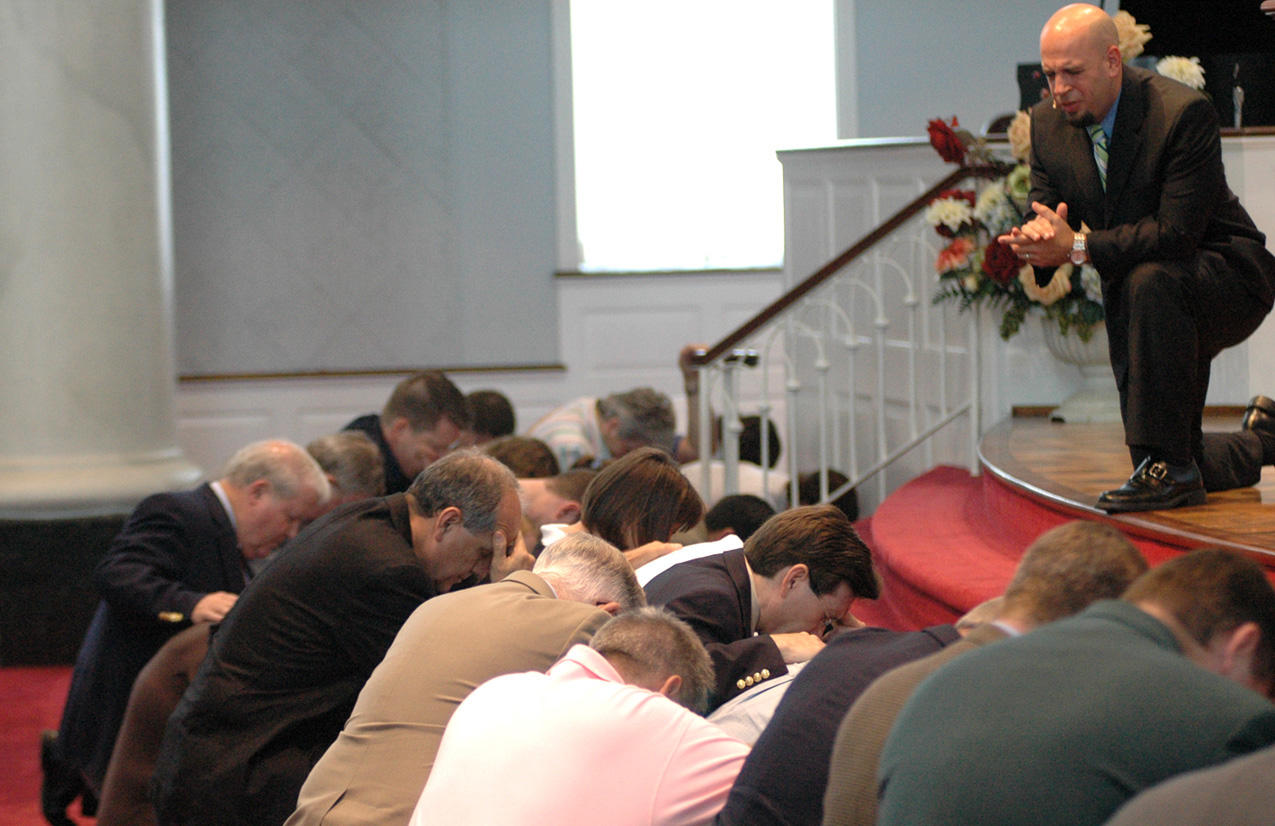
NEW ORLEANS (BP)–“Have you ever tried to do the work of God apart from the Spirit of God? It’s not a good feeling, is it?” Tony Merida said during a New Orleans Baptist Theological Seminary missions commissioning service May 9.
It was the first such commissioning at NOBTS since Hurricane Katrina.
Merida, the seminary’s new dean of the chapel, addressed the service during which 100-plus members of the seminary family were commissioned either for short-term or long-term missions. Some will serve in New Orleans this summer in ministries like the seminary’s day camp or summer MissionLab program. Others will serve internationally.
Since 2005, 57 people from New Orleans Seminary have been appointed to long-term missions through the International Mission Board. Of those 57, 40 cannot be identified due to security issues, according to the seminary’s Global Missions Center, which works in developing mission strategies, promoting mission involvement and training missionaries to share the Gospel around the world.
Missionaries cannot rely on their own strengths and abilities, Merida said. Instead, they need the Spirit’s power, he said, using an analogy of driving a car with a broken gas gauge. From the outside, the vehicle appears to be full of fuel. In actuality, it’s empty.
“That’s pretty parabolic of the Christian life,” Merida said. “We want people to think the gauge represents what’s real. The gauge says “Full” but we’re really empty.”
With a desire for fullness in mind, Merida pointed to the Apostle Paul’s prayer for followers of Christ in Ephesians 3:14-21. Paul devoted the first two chapters of Ephesians to reminding the Christians in Ephesus of the great work of redemption that God accomplished in Jesus. Through Jesus, God brought them into his family. Paul then focused on what Christians, in turn, are to do in chapters 4 to 6.
“Right between these two sections is this prayer of power, and I think that’s very significant,” Merida said.
Merida highlighted first Paul’s posture in prayer. As Paul contemplated the grace of God, he humbly bowed to pray.
“When the grace of God lands on you, it should take you to your knees,” Merida said.
Merida also focused on Paul’s petitions, which center on the Ephesians being strengthened “with power through his Spirit.”
“We need missionaries that are full of the Spirit doing His work, that rely not on conventional wisdom but on the sovereign work of the Spirit,” Merida said.
Merida also challenged the missionaries to contemplate the great love of Christ, just as Paul challenged the Ephesians. Through that love, Paul wrote in Ephesians 3:19, they “may be filled to the measure of all the fullness of God.”
And in light of width, length, height and depth of Christ’s love that Paul cites, he responds in praise.
“[Paul] starts off bowing before the Father and he ends up with this incredible doxology,” Merida said.
Merida concluded by telling the story of a missionary to Africa, David Livingston, one of the great heroes of the Christian faith. Livingston spent most of his adult life sharing the Gospel with unreached peoples on that continent.
Despite great personal hardship, Livingston remained faithful to his calling. And upon his death, though his body was sent back home, his heart was buried in Africa.
“Where will they bury your heart?” Merida asked.
–30—-

















